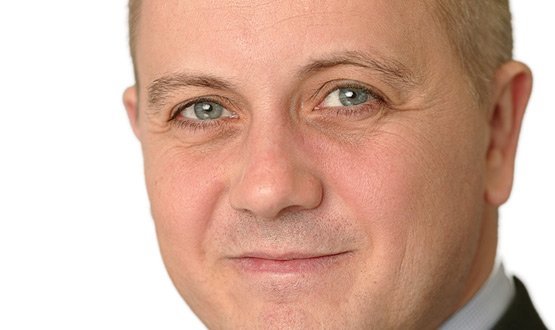Kelsey: EMRs must be ‘fit for purpose’
- 5 October 2015

Electronic patient record suppliers need to improve their engagement with clinicians to create effective systems for the NHS, NHS England’s national director for patients and information has said.
Speaking at the Healthcare Efficiency Through Technology event in London, Tim Kelsey faced a question from the audience on the impact of the recent Care Quality Commission report on Cambridge University Hospitals NHS Foundation Trust, which identified several problems with its eHospital programme and rated the trust as inadequate.
“I think that some of the vendors of EMR systems have not done nearly enough to work with colleagues in clinical practice in the UK to ensure we have systems that are fit for purpose,” said Kelsey, who was speaking at one of his last public engagements, having recently announced he is to leave NHS England for a new role in Australia.
“It is definitely no reflection on the quality of clinical contribution that some systems are not fit for purpose or don't work in our context.”
He suggested that open source solutions might have appeal due to the collaborative process of development. “One of the reasons I'm taken with some of the open source solutions that Somerset, Musgrove Park and other hospitals are beginning to look at is they fundamentally require a kind of collaboration between software designer and clinician to work on how best they are being developed.”
Dermot O'Riordan, chief clinical information officer at West Suffolk NHS Foundation Trust, responded to the comments on Cambridge University Hospitals by saying “we need a sense of proportion”.
He mentioned that his trust now had doctors who had worked at Cambridge University Hospitals’ Addenbrookes site that missed using Epic, the US system that went live at the trust last year as part of a ten-year, £200 million eHospital programme that also includes an infrastructure overhaul from Hewlett Packard.
He said that doctors are finding moving from Addenbrookes to a trust without a full EMR tough. “They are struggling to get back to paper from where they were.”
He added: "We need a sense of proportion because I have now got foundation doctors who have worked with Epic in Addenbrookes who are coming to us and they miss Epic."
In response, Kelsey added: “No-one’s knocking any of the vendors. This is your call. You need to make a judgment about which approach is the right one and you should feel empowered to do that."
O'Riordan, who was previously interim chief executive at his trust, which is on the brink of going live with Cerner Millennium, also warned of the dangers of over regulation and a risk averse regulatory regime.
"I do think there is a problem with our regulators and the reaction is in danger of making boards so risk averse they won’t touch anything like this and they won’t innovate because all they are going to get is a pile of hassle. We do need a sense of proportion. The big vendors – let’s not knock them because they are here and they are part of our future. We absolutely need to work with them about interoperabilty."
Carrie Armitage, who was programme director for the eHospital at Cambridge University Hospitals from 2011 to 2015 said in an email to Digital Health News that the team recognised "right at the beginning" that clinical engagement is essential in implementing an EMR and that more than half of the hundred plus team of Cambridge staff who trained as Epic analysts were practising clinicians.
"This represented an unprecedented level of clinical commitment and these staff were supported by further clinical subject matter experts from all specialties."
She added: "In 18 months Cambridge University Hospitals managed to refresh its entire IT infrastructure and move over 9,000 staff from a predominately paper-based medical records system to a full EPR which is expected to achieve formal HIMSS Level 6 accreditation this October – less than a year since the go-live. Surely this is the sort of progress that we want to see towards full EPR?
"First-of-type implementations in a new country are bound to identify issues. It’s true that CUH experienced a number of these, but has worked closely with both Epic and the local clinical community to address them. I believe this will stand any future implementation in good stead."
Dr Phil Koczan, chief clinical information officer for UCL Partners and deputy chair of the CCIO Network, told Digital Health News: “Large, US based IT systems work best where care is delivered within one organisation. This is often not the case in the UK, and given the challenges that were faced by the national programme for IT, I believe we will continue to work in a system where different organisations use different systems, the challenge is around integrating the clinical data using evolving interoperability standards.
“Implementing IT systems requires a significant change in the way clinicians record data and interact with patients. In order to make this as efficient as possible, the clinicians need to be involved in tailoring the system to their needs and have the flexibility within the system to provide local configuration, it requires IT specialists, clinicians and suppliers to work together and collaborate.”
Kelsey also referenced Cambridge University Hospitals earlier in the session, commenting that there is a challenge around the capabilities for leading change in parts of the NHS. “We need senior managers, both clinical and non-clinical to learn how to do large scale employments.”
He mentioned that the NHS should look to the US where they have had “remarkable success in improving the pace of digital adoption” due in part to financial incentives for the adoption of EPRs.
“They have not only put on the table a significant financial incentive, they have aligned that with very coherent opportunity for training and support for boards of hospital, for clinical leaders, which I think is something we are focused on emulating in the UK.”




